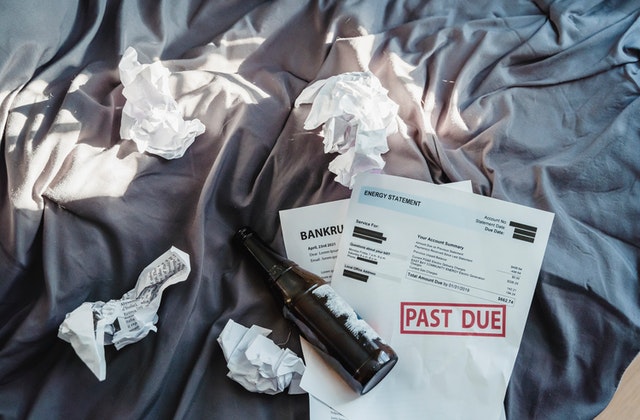Bankruptcy is not for everyone.
Here are five bankruptcy stats that may interest you:
- More than 1.5 million people are filing for bankruptcy every year.
- 40% of those who filed for bankruptcy lost their jobs.
- Alabama is the state with the highest bankruptcy rate.
- 52% of filers for bankruptcy are male.
- 62% of personal bankruptcies in the United States were due to medical expenses
If you believe that filing for bankruptcy is the best option for you right now, you need the right people to guide you.
You may also wish to get in touch with people like these chapter 11 bankruptcy lawyers in Harrisburg PA to get help from experienced legal practitioners who are more than happy to help you manage your large debt.
These financial experts are ready to provide you with good advice before making any definite moves.
What can you expect after going bankrupt?
What to Expect After Becoming Bankrupt
Why do people file for bankruptcy?
Why do some people go bankrupt?People can become bankrupt for several reasons.
- They experience a decrease in their income and an increase in their debts and bills.
- They may have been retrenched from their jobs.
- They may overspend and their credit card bills skyrocket.
- Some are dealing with a divorce or the death of the breadwinner in the family.
- Or spent most of their savings on medical bills.
You can apply for bankruptcy yourself or your creditors may force you.
If you owe one creditor over £5,000 you can apply for your bankruptcy.
In reality, bankruptcy is an absolute last resort and it’s only advisable for borrowers with unsecured debts of £20,000 and over.
If you owe less than £20,000 then you may be better with solutions like individual voluntary arrangements (IVAs) or debt relief orders (DROs).
If you owe less than £20,000 then you may be better with solutions like individual voluntary arrangements (IVAs) or debt relief orders (DROs).
How does bankruptcy work?
To declare yourself bankrupt, you must fill out a form at the GOV.uk website.You’ll need to have documents like payslips, bills, council tax letters, rent or mortgage agreements, and the details of all your debts.
In England and Wales, it costs £680 to apply for bankruptcy (it’s £669 in Northern Ireland).
In England and Wales, it costs £680 to apply for bankruptcy (it’s £669 in Northern Ireland).
While this might seem like a lot, you can pay it in installments (minimum of £5) if you pay online.
Once your application is in, you can expect the adjudicator to decide in 28 days whether to accept it and issue a bankruptcy order or to reject it.

Once your application is in, you can expect the adjudicator to decide in 28 days whether to accept it and issue a bankruptcy order or to reject it.

If you’re successful at your bankruptcy application...
Some or all of your non-essential assets could be sold to pay creditors and the remainder of the debt is written off.
If you have enough disposable income, you might be asked to make some ongoing payments each month for up to three years.
How long does bankruptcy last?
How long can you be bankrupt?Expect bankruptcy to last for 12 months, during which time you’re undischarged bankrupt.
Once the 12 months are up, your bankruptcy remains on file for five more years.
Credit providers and banks can see this information and use it in their decision-making processes.
Is it possible to get credit if you're bankrupt?
While you’re filing for bankruptcy, don't expect to get a personal loan or a credit card.During your period of bankruptcy, you won’t be eligible for a bank account that has an overdraft facility or a checkbook.
You can make do with a basic bank account so you can pay direct debits and standing orders and receive wages and benefits.
You can make do with a basic bank account so you can pay direct debits and standing orders and receive wages and benefits.
What else is affected if you go bankrupt?
It’s not just credit offerings like overdrafts and loans that can be affected if you go bankrupt.Expect other services and products can be too.
Your insurance premiums may go up as your providers can see that you have been bankrupt recently.
Your insurance premiums may go up as your providers can see that you have been bankrupt recently.
This is to cover what they see as an additional risk, as you pay for an annual policy in monthly installments.
Alternatively, your insurer may offer you the chance to pay for your whole year upfront to keep down the cost.
For large debts, you might sell your house to pay your debts and find a rental property.
For large debts, you might sell your house to pay your debts and find a rental property.
Finding a tenancy agreement after you go bankrupt can be difficult.
Having a financially-stable relative or friend to act as a guarantor is a good idea.
Have you ever had a difficult money situation? Did it ever lead to or did you consider filing for bankruptcy?
Keep these things in mind so you'll know what to expect after becoming bankrupt.






















0 comments